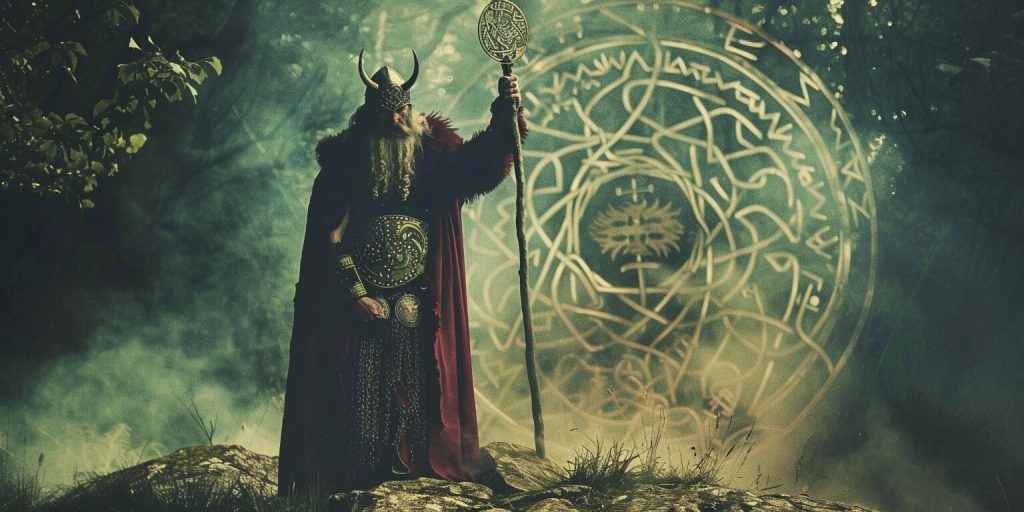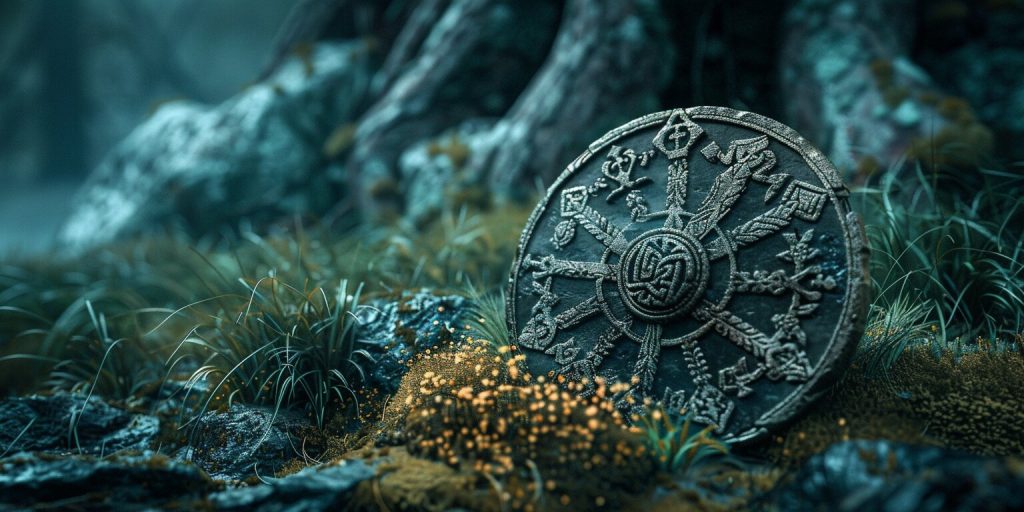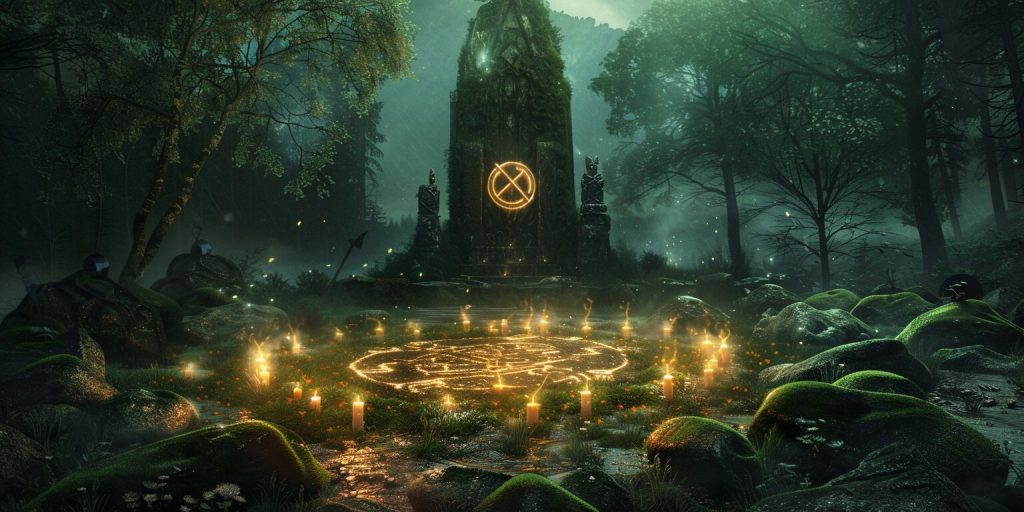Aesir Gods, Norse Ancestry, Norse Gods, Norse Mythology, Odin, Thor, Viking Heritage
Do People Still Believe In Norse Gods
Do people still believe in Norse gods? Is the Norse religion still practiced? These questions raise questions about the ongoing interest in the old Norse gods and their stories. Even though most people follow mainstream religions, many still believe in the Norse gods.
This article will examine the current state of the Norse pagan religion and the lasting belief in its gods. We’ll also see why Norse gods are still popular today.
What Is The Significance Of Norse Gods In Today’s World?
To understand the importance of Norse gods today, we must look at their role in ancient times and their relevance in contemporary religion today. We also need to see the renewed interest in Norse paganism and its effect on popular culture. The Norse gods, known as the Aesir and Vanir, were key in the beliefs and practices of the ancient Norse, and these deities continue to be honored in modern Norwegian ásatrú.
Role Of Norse Gods In Ancient Times
The ancient Norse people worshipped the Norse gods, forming the foundation of what we now know as Norse heathenry and ásatrú. They believed in a group of deities that controlled different parts of life. Gods like Thor, the god of thunder, and Odin, the god of wisdom and war, were seen as powerful. They were thought to affect the world and were honored through prayers and rituals, a practice still seen in modern ásatrú and heathenry.
Revival Of Interest In Norse Paganism Today
Recently, there’s been a big interest in Norse paganism again. Many people are drawn to the old beliefs and traditions. This has led to new Norse pagan communities, especially among those who follow ásatrú and heathenry. They hold rituals, ceremonies, and celebrations to honor the gods.
Impact Of Norse Mythology On Popular Culture
Norse mythology has left its mark on popular culture, with references to gods like Odin and the concept of Valhalla. It shows up in literature, art, movies, and TV shows. The Viking Age and its stories have inspired many, like in Neil Gaiman’s “Norse Mythology” and the TV series “Vikings.”
Music and fashion have also been touched by Norse mythology, with themes of Valhalla and gods like Odin frequently appearing. Bands use Norse themes and symbols in their music. Fashion designers draw inspiration from Viking styles.
The Norse gods are still important today because of their historical role, the growing interest in Norse paganism and ásatrú, and their lasting impact on culture. As people look for connections to ancient traditions and find inspiration in mythology, the Norse gods stay relevant and influential.
How Do Modern People Connect With Norse Gods?
Modern folks find ways to connect with the Norse gods. They draw inspiration from Viking heritage and beliefs. They compare modern worship to ancient Norse rituals, showing how these traditions have changed over time, particularly in places like Iceland and Norway.

Practices Associated With Worshipping Norse Deities
People today have many ways to worship Norse deities. They perform rituals, make offerings, and pray to the gods. Rituals often involve setting up sacred spaces, like altars, for connection with the divine.
Offerings can be food, drink, or symbols from Norse mythology. Praying is a way to talk to the gods for guidance and help.
Influence Of Viking Heritage On Belief Systems
The worship of Norse gods is linked to Viking heritage and beliefs. Modern followers get inspiration from Viking myths, sagas, and history. Viking culture shapes their view of the gods and their role in life.
This connection to Viking heritage gives a deep sense of identity. It highlights the need to keep Norse traditions alive.
Comparing Modern Practices With Ancient Norse Rituals
Modern ways of worshiping Norse gods have changed, but they are still connected to ancient rituals. Practitioners aim to follow their ancestors’ values in today’s world. Modern practices might mix elements from other faiths, use symbols and stories, and focus on personal growth.
Do People Still Follow The Traditions Of Norse Gods?
We will examine how the modern Norse pagan community has grown, how Norse beliefs are now part of today’s spiritual practices, and how people celebrate the Norse gods in different places.
Growth Of The Modern Norse Pagan Community
Today, more and more people are following the Norse gods. They find Norse mythology fascinating and want to incorporate its teachings into their lives. This group is getting bigger as more people find value in the old Norse stories and symbols, reflecting a broader revival of Norse heathenry and ásatrú.
Integration Of Norse Beliefs Into Contemporary Spiritual Practices
Norse beliefs are still alive and well today. People adapt old rituals to fit their modern lives. They practice meditation and divination and use symbols to connect with the Norse gods and keep their traditions alive.
Celebrations Honoring The Norse Pantheon In Different Regions
In various places, people celebrate the Norse gods. These events unite followers, strengthen their community, and show their love for the gods. There are festivals and gatherings for specific Norse gods, letting people dive deep into their heritage and embrace their belief in the Norse gods.
Are There Similarities Between Ancient Norse Religion And Modern Beliefs?
We will examine the interesting links between ancient Nordic religion and today’s beliefs. Even after centuries, some core values are still with us and touch people’s lives. By examining these shared values, we will see how Norse mythology affects our spirituality today.

Exploring The Core Values Shared Between Old Norse And Modern Belief Systems
Let’s focus on the core values that both ancient Norse religion and modern beliefs share. Despite the time gap and cultural differences, some key principles are common. These include values like courage, honor, loyalty, and respect for nature.
Today, many people still value these principles, even if they don’t follow a specific religion. This shows how these values are universal and still guide our actions and morals.
Adaptation Of Norse Myths To Fit Present-day Ideologies
It’s also interesting to see how Norse myths have changed to fit today’s beliefs. Myths and legends change over time to reflect society’s new needs and beliefs.
Now, we see Norse mythology in art, literature, and popular culture. Figures like Thor, Loki, and Odin have been updated for today’s stories. They inspire people and add to our stories, much like the ancient gods like Odin and other deities in Norse mythology.
Connections Between Modern Paganism And Historical Norse Practices
Looking at modern paganism and ancient Norse practices shows a deep connection. Many modern pagans look to Norse traditions for spiritual guidance and a link to the divine, which is particularly strong in countries like Iceland and Norway.
They take part in rituals and celebrations inspired by Norse practices. By using Norse wisdom and symbols, they aim to connect more with nature and their spiritual paths.
In the end, the similarities between ancient Nordic religion and today’s beliefs show the lasting impact of these belief systems. From values to stories, ancient Norse religion still shapes our thoughts and spirituality, linking past and present, especially for those who practice modern heathenry.
Takeaway
Exploring the Norse gods shows that they still matter to many today. These ancient beings were once key to the natural world and human life, and they continue to influence modern heathenry and the belief in the Norse gods. Now, their roles have changed, but their impact remains.
Now, people connect with Norse gods in new ways. They practice worship and embrace Viking heritage. This links the past to the present, letting people honor their heritage and find inspiration in Norse myths.
The traditions of Norse gods are alive in today’s pagan community. This community’s growth shows how much people still value Norse mythology. Celebrations of Norse gods happen all over, proving their lasting appeal.
There are also strong links between old and new beliefs. Both value courage, honor, and loyalty. By using ancient myths in today’s world, we see how modern paganism and Norse traditions are connected.
In the end, believing in Norse gods is still important today. Their stories and traditions guide, inspire and give us a sense of belonging. They help us connect with our past and find meaning in our lives.

